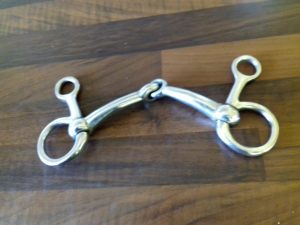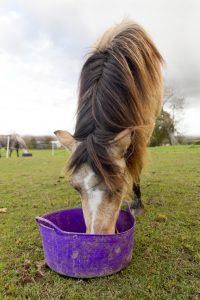We should never stop feeding our appetites for knowledge, writes CAROLYN HENDERSON
The more time you spend with horses, the more you realise that you never stop learning about them. Learning goes through stages. You start off like a sponge, soaking up anything and everything. Then you get to know your fetlocks from your withers and feel more confident. Finally, you decide that with the right support, you know enough to become a horse owner – which is when the roller coaster ride really begins.
In some ways, I envy those who are starting their horse-owning journey. There is so much science-based knowledge available that vital aspects of management, such as feeding, can be based on fact rather than fiction. In others, I respect horse sense – knowledge built through time spent with horses and from listening to those who have spent a lifetime observing them and feeling their responses when riding.
The best of both worlds comes from combining the two, being ready to ask questions and always being ready to question the way you do things. That’s why I was sad to read cutting replies on a respected online forum to a member who asked for views on feeding her horse. She knew all the correct principles, from basing every diet on good quality forage to feeding according to age, type, and workload, but wanted to fine tune her horse’s diet now that she was stepping up a rung on the competition ladder.
Some members shared their experiences while others suggested companies whose nutritionists had, they felt, given good advice. Sadly, others were scathing and sneered at both the poster of the original query and the nutritionists others recommended. “If you don’t know how to feed a horse, you shouldn’t own one,” declared one person. Others believed that you couldn’t trust nutritionists, because all they wanted to do was push their own products.
There are a few potholes in those beliefs. One is that no matter how knowledgeable you think you are, you need to keep up to date with the latest research and decide if and how you apply it to your circumstances. It’s the equivalent of CPD (continuous professional development) which is, or should be, vital in any workplace. Knowledge evolves. For instance, we all spent decades thinking that hanging cheek snaffles applied a little poll pressure.
Pressure testing analysis has shown that this isn’t the case. Does it matter? Perhaps not, if you remember the principle of observing your horse and being aware of his reactions. If he responds happily to the actions of a bit – and, just as important, the hands on the reins – you might not need to know how it works, just that it does. On the other hand, if he doesn’t like a bit where rein signals are transmitted instantly, or you don’t yet have the finesse to use it, you might use that research to direct you towards another combination of cheekpiece and mouthpiece.
As for qualified nutritionists…well, hopefully they’ve helped most of us bust through feeding myths such as “Every horse should be given a bran mash once a week” and “Carrots are dangerous because they’re so high in sugar.” If you want to know more, call one of the brilliant free helplines offered by reputable companies and ask a good nutritionist! I hope those scathing posters ended up eating their words, because I doubt they’d ever talked to one.
If you ring up a company, then of course the advice will centre on their products. But it should be – and in my experience, always is – based on sound principles and the latest research and will take into account a whole range of factors, including your horse’s lifestyle. As part of research for a magazine article, I once contacted six company nutritionists asking for advice for an imaginary horse and scenario.
As far as they were concerned, I was a potential customer. In every case, I was given broad-based advice and while they suggested a feeding programme based on their products, the principles remained the same. And those scathing forum posters? I certainly don’t know it all, but I do know one thing. One day, a horse will show them that they aren’t as clever as they think. Then, perhaps, they’ll realise we all need to keep on learning.




